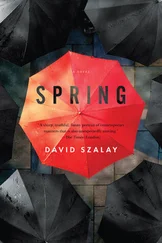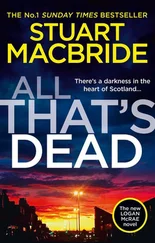His own house has something similar. Not quite as posh — the numbers just stencilled onto the glass, not picked out as negative space in the frosting. It was already there when they moved in. Miranda was pregnant at the time. The house was a mess. Ancient gas fire in the front room. Overgrown garden. A crust of dust on all the surfaces inside. Someone’s parent had lived there, then died, and it was being sold. The price was well over half a million. It was shocking, how little you got for all that money — and all the way out here, in this windy low-lying part of London about which he knew nothing, with its prisons, and its playing fields.
Its empty expanse of sky.
They had taken the house in hand. Miranda had. Spaces opened up, painted pale colours. The garden paved, turfed, filled with daffodils. Halogen lights embedded everywhere, flooding on at the touch of a switch. Everything quite small, admittedly. The living room — the street hidden behind linen blinds — only two paces from end to end. The table in the kitchen unable to accommodate more than four. The nursery so tiny the window hardly fitted in the wall.
And outside, the daffodils shivered, the clouds massed and dispersed in the sky.
And that was five years ago.
Time passes.
‘Tommy,’ James shouts, as his son gets too far ahead of him. ‘Tom.’
They are at the end of Tranmere Road, where it meets Magdalen Road, and the primary school is, and further on Wandsworth cemetery, strung out along the railway line towards Clapham.
Tom waits for him, and James takes his hand to cross the road.
They arrive at the station, as James does every weekday morning. The names of places in Surrey scrolling across the information screen are as familiar to him as his dreams. They are part of him now, those names: New Malden, Surbiton, Esher…
He arrived home on Friday night to find the kids asleep and his wife watching television, some panel show. Every few seconds: laughter. He joined her on the sofa, leaving his things in the narrow hall. He took off his shoes.
Later, her shapes under the sheets.
On Saturday, though, he was short-tempered.
Last week, in high winds, a substantial piece of chimney fell off the house — stove in someone’s new Nissan Qashqai which was parked in front. An insurance nightmare. Miranda had been on the phone all week to the insurers, without much to show for it. Just to sort out the chimney, even that seemed problematic. He spent most of Saturday in the low bed under the sloping roof, peering at small print on a tablet screen, furious at having to spend his time on it. Tom sulking, damaging things. Alice wailing somewhere downstairs.
The train passes through sunlight. Passes allotments. Ivied walls. For a moment, some sort of waterway, shiny like mercury under dark trees. Masses of tracks run parallel as they draw near Wimbledon.
He is holding Tom’s hand when they step off the train onto the platform. People everywhere. District line trains waiting in the intermittent brightness as clouds swim overhead.
Miranda’s parents are coming for lunch today, driving in from Newbury. Miranda is in the kitchen, preparing food. Some sort of Italian lamb dish, James thinks.
Tom says, ‘Why are trees so high?’
They are on the bus, the number 93, as it makes its way from Wimbledon station to the Common, up Wimbledon Hill Road.
James considers the question.
It is his part, this morning, to take himself and Tom off somewhere to be out of the way while Miranda makes lunch, and Alice hangs in that harness thing which is supposed to keep her out of trouble.
He says, ‘I suppose they’re trying to get as near to the sun as possible.’
‘Why?’
Fond smiles from some of the people near them on the bus, which is not full. They are on the upper deck, near the front.
‘Well,’ James explains, ‘the sunlight makes them grow. They need it to grow.’
Tom is looking with interest at the plane trees that line the road, loom leafy over the wide pavements. London Sunday, the hum of the place only slightly subdued. People walking down there, purposefully. James sees a man and a woman walking up the hill, the same way the bus is travelling — tall woman with dark mass of hair, long arms expressing something.
‘They need it to grow,’ Tom repeats, a stray moment of sunlight finding the leaves he is looking at.
‘That’s right,’ James tells him, pleased.
Handsome red-brick houses here.
And new developments of flats.
Noyer. Never far from his thoughts.
Then Wimbledon ‘village’. The High Street with its posh little shops — people energetically shopping — and what was once a village green. War memorial.
Miranda’s parents will be on their way. They are fairly tweedy, Miranda’s parents. Members at Newbury Racecourse. The four of them went once. Hennessy Day. Fuck, that seems a long time ago. It seems like something from another life, that afternoon.
Time passes.
—
The air sits thick and damp on the flat land of the common. There are people around — it is still summer, just, and the weekend. Ferns and bracken crackle as children rampage through their tired green fronds. Trees hang leafy limbs over dry bridleways. The showers that passed overnight just dampened the dust, and since dawn the sun has dried it. Falling through holes in the cloud cover, the sun is hot. It shines blinding white on the ponds.
James follows his son further out into the quiet of the common, away from the places where people are playing football, and dogs are sprinting after sticks.
He has been thinking, since Friday, whenever he has had time, about Noyer and the plot of land he showed him. He needs to come up with a plan himself, something he can present to Noyer, something obviously superior to his own idea of just plonking down a jumbo version of Les Chalets du Midi, full of shitty furniture. Eight chalets, was what James was thinking, and ten apartments.
They have left the rutted bridleway, its long brown puddles, and are pushing into the wood. Mature trees. Ferns everywhere, starting to turn on top, some of them. Keeping up with his son, wading through the damp ferns, leaves him short-winded. ‘Tom,’ he calls out. ‘Tom! Oi. Wait for me.’
Eight chalets, ten apartments.
Five million to do it all? More? Utilities need sorting. Access. Just a track now. Yes, more, probably.
Noyer won’t have that kind of money. Maybe one or two million he can put in.
So need say four or five million from somewhere. Leave Noyer with about — plus the land — about forty per cent. Will he be happy with that? With nearly half the profit? Double his money, pretty much. Should be happy: not doubling his money on Chalets du Midi, that’s for sure.
He has lost sight of Tom. ‘Tom!’ he shouts.
He will have to, on Monday, tomorrow, start thinking seriously about who he might go to for money. He is already thinking about it. He has some old names. Starting points. Tristan Elphinstone, for one. (Number still work? Will soon see.) He pocketed some cards, that evening at the Gherkin with Air Miles. Time to find those. The thing is, he should leave Esher first, if he goes to Air Miles’s people, probably. Shouldn’t he? Something dishonest, otherwise.
Or worse — to be sued by Air Miles would not be fun.
Leave Esher.
That would be a major step.
So many overheads these days, that’s the thing. Mortgage. School fees. Laima’s salary — the Lithuanian nanny.
He has not even told Miranda about Noyer yet. The Esher job is something she likes. It is quite well paid. It seems secure. She thinks he likes it too — all those jaunts out to the mountains. Once or twice, in the early days, she went with him. Skiing weekends. Pre-kids, of course. He started there at almost the same time they got together, that summer.
Читать дальше












